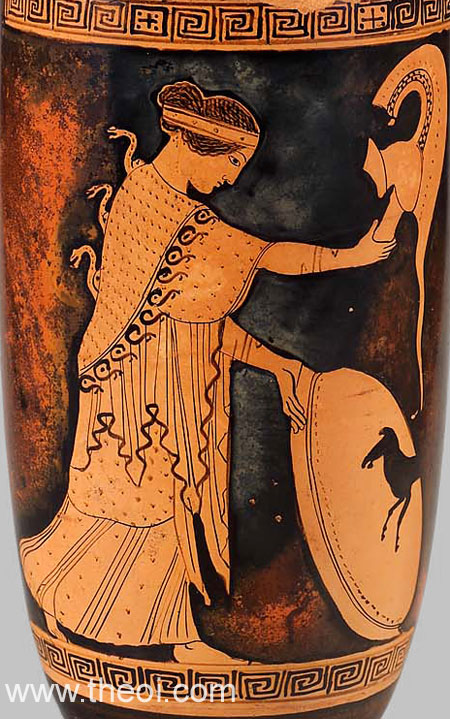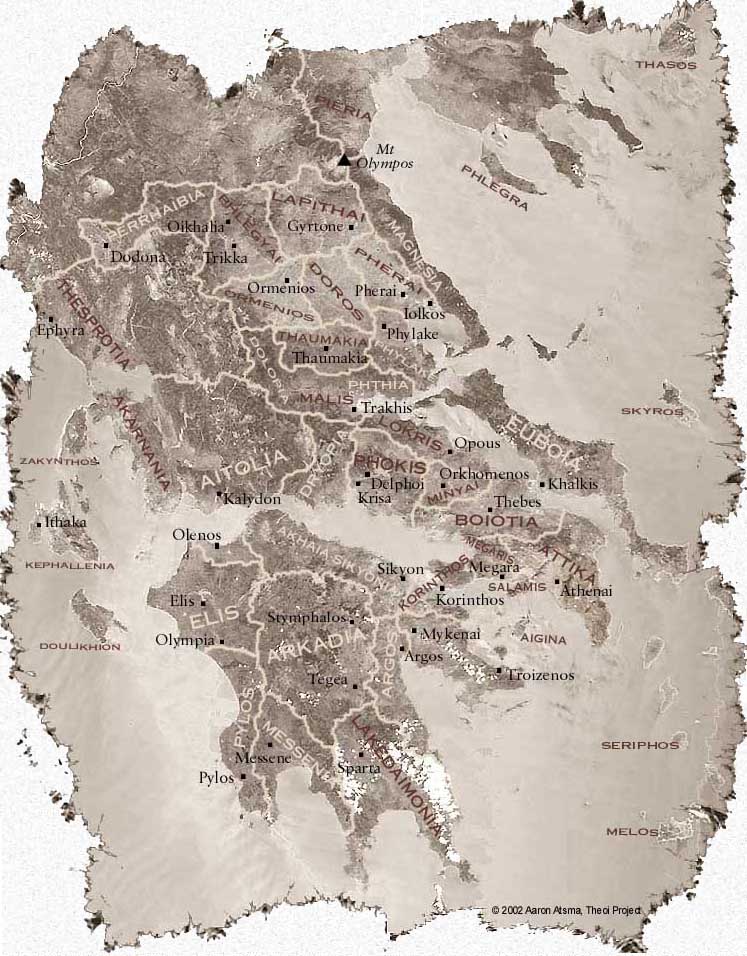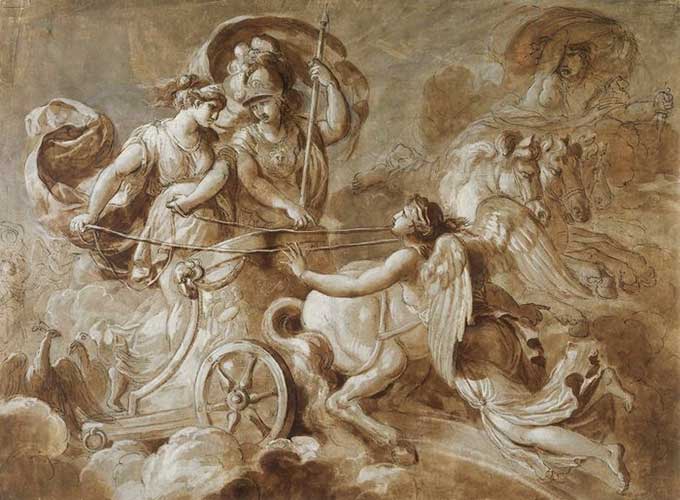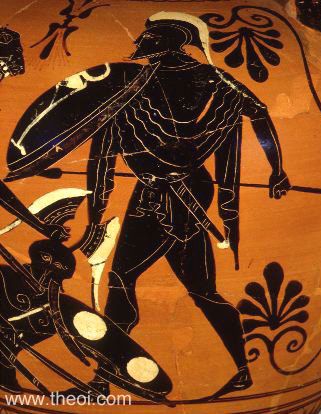The Trojan War was a great series of battles fought between the Greeks and the Trojans sometime in the Late Bronze Age (1200–c. 500 BC). According to the stories from Homer’s Iliad, it was the greatest war of its time that included a multitude of exemplary warriors and even a few meddling Greek gods.
The war is said to have raged on for so long and claimed so many lives because, as mighty and multitudinous as the Greek army was, they were simply no match for Trojan defenses that were strategically enacted around the city of Troy.
What precipitated the Trojan War? How long did it last and who won the Trojan war? Let’s look at the myths, the facts, and the stories that make the tale of this war one of the most important narratives in Greek Mythology.
How Did the Trojan War Begin?

To this date, the main source of information on the Trojan War is Homer’s Iliad. According to Homer, who lived a few centuries after the war had ended, the entire conflict began when Paris, a prince of Troy, met Helen, a queen of Sparta.
Homer’s Iliad was written sometime within the 8th century BCE. According to the Greeks, the war took place during the 13th century BCE. While Homer himself wasn’t alive when the war took place, the tales surrounding the conflict were part of long-standing oral tradition prior to his work. Homer combined these tales and other sources to give a picture of what might have precipitated the war and how it panned out.
Here is the story according to Greek tradition:
The Trojan War came about for two main reasons: Zeus, the Kind of the gods, wanted to find a way to reduce the ever-increasing human population.
However, before all that, there are stories that claim the entire thing came about as a result of the meddling Greek gods. You see, three of the most beautiful goddesses on Olympus (Athena, Aphrodite, and Hera) were contesting which one of them was the fairest of all. For a judge, they picked young Paris, a prince of Troy known for his passion and love for beautiful women.
In an attempt to rig the election, Aphrodite promised Paris that she would give him Helen, the most beautiful woman on Earth if he picked her. So he did. The only problem here was that Helen was already married to Menelaus, the King of Sparta.
While on a diplomatic mission to Sparta, Paris seduced Helen who, thanks to the influence of Aphrodite, fell in love with him. There are conflicting stories as to how Helen ended up going back to Troy with Paris. Some say that Paris abducted her, perhaps because he felt that she was rightfully his according to the agreement he had with Aphrodite. Some say that Helen went out of her own accord because she preferred Paris to her tyrant of a husband, Menelaus.
Either way, this love story, like many others before and after it, resulted in a war which we now know as the Trojan War.
Who Took Part in the Trojan War
Menelaus, the king of Sparta and rightful husband to Helen, felt so slighted by the fact that the Trojans refused to return his wife that he went to his brother, Agamemnon of Mycenae (Greece). Menelaus pleaded with his brother to help him wage war against the Trojans for the great insult that they had paid him and Agamemnon agreed. So they began to amass a great Greek army which included several cities within the region:
- Sparta
- Arcadia
- Boiotia
- Phocia
- Athens
- Argos
- Euboea
- Corinth
- Kephalonia
- Rhodes
- Crete
- Magnesia
- Cyclades
It’s unclear just how many men this army totaled but at some point, Helen, formerly “Helen of Sparta, and now “Helen of Troy” became known as the “face that launched a thousand ships.” That’s how many ships (approximately) the Greeks sailed to Troy. Homer says that “the men were as many as the leaves and flowers that come in springtime.”
It was dubbed the war that would be remembered for a thousand years. Amongst the Greeks, there were some notable warriors and special heroes. Some, such as Achilles, were demigods who had one parent as a mortal while the other was a god. Some of the most notable warriors on the side of the Greeks were:
- Achilles
- Patroklos
- Diomedes
- Odysseus
- Antilokus
- Menestheus
- Idomenus
- Ajax
Additionally, the Greeks were helped by several meddling gods of Greek orientation including Athena, Hera, Poseidon, Hephaistos, Thetis, and Hermes. These gods had their favorite warriors, and they often protected them by deflecting arrows and spears away from them. They even went as far as spiriting them away on some occasions so as to take them away from the dangers of battle.
The Trojan Army and Defenses
Troy was a well-protected city with an impregnable wall. Add to that the fact that King Priam was rather smart and his son, Hektor, the crown prince, was believed to be just as deadly in battle as Achilles despite not being a demigod himself. The Trojans also had allies and received help from a few gods such as Ares, Appollo, Leto, and Aphrodite.
How Long Did the War Last?
It is said that the war raged on for 10 years at a stalemate. During this time, there were some key notable battles:
- Paris vs. Menelaus:Menelaus was the better warrior, but Aphrodite came to the aid of Paris and spirited him away.
- Hektor vs. Ajax: This battle ended in a stalemate because the other warriors called an end to it as night approached.
- Hektor vs. Achilles: Although both were very technically gifted fighters, Achilles as a demigod of divine strength and skill. He killed Hektor, a warrior of renowned skill himself on the battlefield in single combat.
Who Won the Trojan War?
The Greeks, being unable to penetrate the walls of the city, found a way to have the Trojans invite them in, unknowingly. They built a huge wooden horse and disappeared within it. The Trojans, on finding the horse and seeing no Greeks, assumed the horse was a gift from the gods who had struck down all their enemies in the night. They brought the horse back within the city walls where the Greeks climbed out in the dark of night and burned down the city of Troy. Only a few Trojans escaped.


